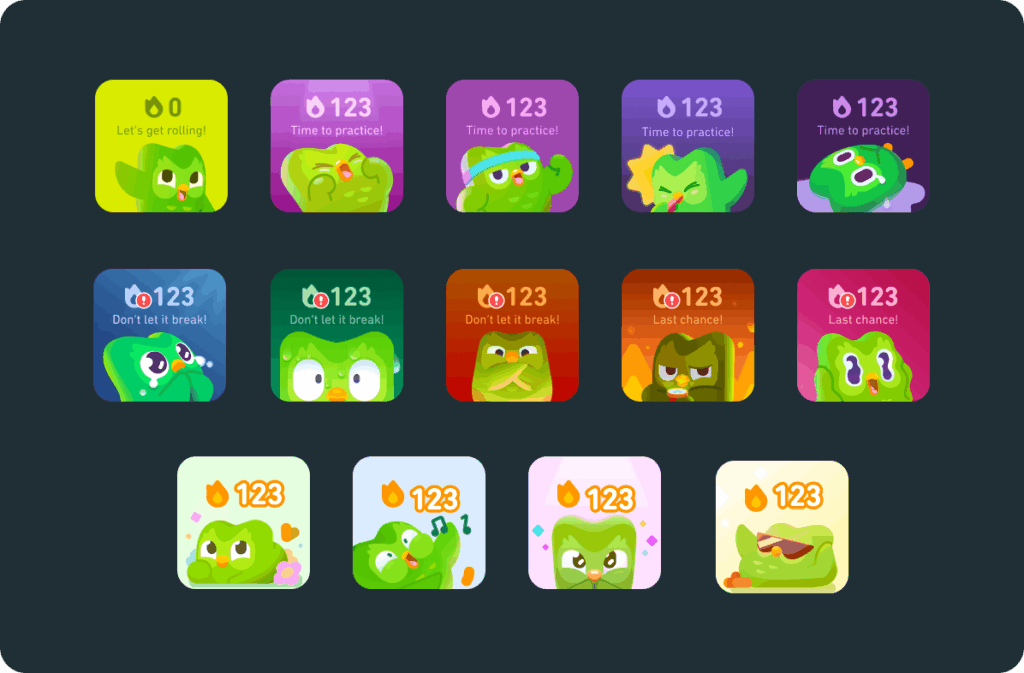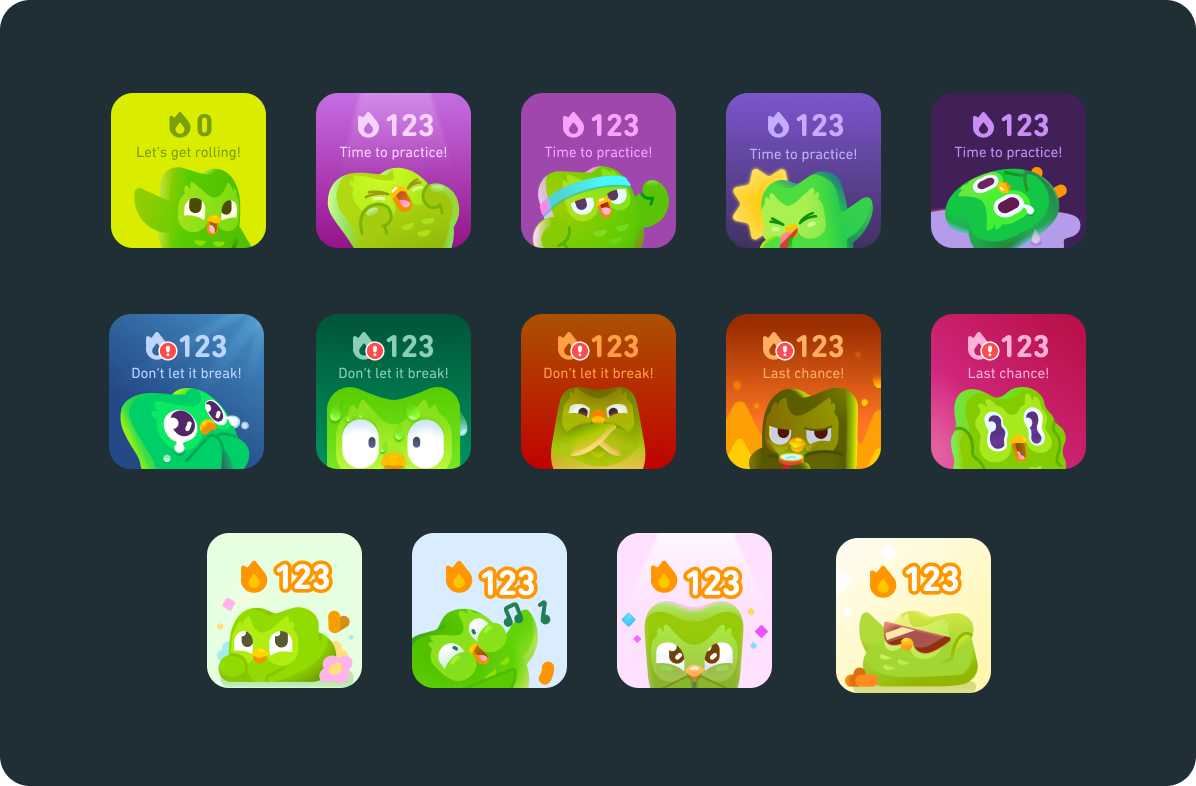
Decoding “Duolingo New Update Porn”: Separating Fact from Fiction
The search term “duolingo new update porn” is, to put it mildly, jarring. It represents a collision of the wholesome world of language learning with explicit content, and its very existence raises immediate questions. Why are people searching for this? What does it even mean? This article aims to dissect this perplexing search query, exploring its potential origins, the motivations behind it, and, crucially, to debunk any misconceptions it might perpetuate. We will delve into the real updates of Duolingo, discuss the app’s safety measures, and address the darker side of internet searches, providing clarity and responsible information. Consider this your comprehensive guide to understanding the phenomenon of “duolingo new update porn” and separating fact from fiction.
Understanding the Roots of the Search Query
To understand why someone might search for “duolingo new update porn,” we need to consider a few possibilities. Firstly, it could stem from a misunderstanding or misinterpretation of Duolingo’s content or features. Perhaps a user encountered suggestive language or imagery (however unlikely) and associated it with the app’s updates. Secondly, and perhaps more realistically, it could be a result of internet humor, meme culture, or deliberate trolling. The internet is rife with attempts to associate innocent brands with adult content, often for shock value or comedic effect. Finally, it could be a genuine, albeit misguided, attempt to find adult content related to the Duolingo brand. Regardless of the origin, it’s crucial to understand that Duolingo is explicitly designed as a language learning tool for all ages and has strict community guidelines prohibiting inappropriate content.
The phrase itself highlights a broader issue: the potential for misinterpretation and the dark corners of internet search. The combination of a familiar, educational brand with a sexually explicit term is designed to be attention-grabbing, but it’s important to address the underlying issues of online safety and responsible content consumption.
Duolingo’s Actual Updates: Focus on Learning and Engagement
Let’s shift our focus to the real updates that Duolingo regularly releases. These updates are consistently geared towards improving the learning experience, enhancing user engagement, and expanding the platform’s language offerings. Recent updates have included:
- Improved AI-powered feedback: Providing more personalized and accurate feedback on pronunciation and grammar.
- Gamification enhancements: Introducing new challenges, rewards, and leaderboards to motivate learners.
- Expansion of language courses: Adding new languages and dialects to the platform’s repertoire.
- Enhanced user interface: Streamlining the app’s design for a more intuitive and user-friendly experience.
- Integration of new learning methodologies: Incorporating innovative teaching techniques to optimize learning outcomes.
These updates are driven by data analysis, user feedback, and a commitment to providing the most effective and engaging language learning experience possible. They stand in stark contrast to the implication of the search query “duolingo new update porn.”
Duolingo’s Commitment to Safety and Age Appropriateness
Duolingo prioritizes the safety and well-being of its users, particularly younger learners. The platform employs various measures to ensure a safe and age-appropriate environment:
- Strict Content Moderation: Duolingo actively monitors and removes any inappropriate content or user behavior.
- Community Guidelines: Clear and comprehensive guidelines prohibit sexually suggestive content, hate speech, and harassment.
- Reporting Mechanisms: Users can easily report any violations of the community guidelines.
- Age Verification: While not foolproof, Duolingo encourages users to accurately represent their age.
- Educational Focus: The app’s primary focus is on language education, minimizing opportunities for inappropriate interactions.
These measures demonstrate Duolingo’s unwavering commitment to creating a safe and positive learning environment for users of all ages. The idea that a legitimate Duolingo update would include or promote sexually explicit content is entirely unfounded and contradicts the platform’s core values.
The Power of Suggestion and Misinformation Online
The fact that the search term “duolingo new update porn” even exists highlights the power of suggestion and misinformation online. A simple search query can propagate false ideas and create unwarranted associations. It’s crucial to be critical of the information we encounter online and to verify claims before accepting them as truth. In the case of Duolingo, a quick examination of the app and its official communications will quickly dispel any notion of inappropriate content.
Furthermore, this situation underscores the need for responsible online behavior. Searching for and sharing inappropriate content, even as a joke, can have serious consequences. It can contribute to the spread of misinformation, harm the reputation of legitimate organizations, and potentially expose individuals to harmful or illegal material.
Why Do People Make These Searches? Exploring the Psychology
Understanding the psychology behind such searches requires acknowledging several potential factors. Firstly, curiosity plays a significant role. The juxtaposition of an educational brand like Duolingo with adult content creates a sense of intrigue, prompting some users to investigate. Secondly, the desire for shock value or transgressive humor can motivate others. Associating an innocent brand with something taboo can be seen as a form of rebellion or a way to challenge social norms. Thirdly, as previously mentioned, some users may simply be attempting to find adult content and are using Duolingo’s name in a misguided attempt to do so.
It’s important to note that these motivations do not excuse or justify the creation or propagation of such content. However, understanding the underlying psychology can help us address the issue more effectively and promote responsible online behavior.
Debunking Myths and Misconceptions About Duolingo
Let’s address some common misconceptions about Duolingo:
- Myth: Duolingo contains sexually suggestive content.
Fact: Duolingo has strict community guidelines prohibiting inappropriate content and actively moderates the platform to ensure a safe environment. - Myth: Duolingo’s updates include adult content.
Fact: Duolingo’s updates are focused on improving the learning experience and expanding the platform’s language offerings. - Myth: Duolingo is not safe for children.
Fact: Duolingo is designed for users of all ages and employs various measures to ensure a safe and age-appropriate environment. - Myth: Duolingo promotes or endorses adult content.
Fact: Duolingo is a language learning platform with a clear commitment to education and responsible content consumption.
By dispelling these myths, we can help ensure that users have accurate information about Duolingo and its mission.
The Real Value of Duolingo: Language Acquisition and Cultural Understanding
The true value of Duolingo lies in its ability to provide accessible and engaging language learning opportunities. The platform empowers users to acquire new languages, connect with different cultures, and expand their horizons. It offers a wide range of courses, from popular languages like Spanish and French to less common ones like Swahili and Hawaiian. Duolingo’s gamified approach makes learning fun and motivating, encouraging users to stay engaged and achieve their language goals.
Furthermore, Duolingo promotes cultural understanding by incorporating cultural insights into its lessons. Users learn not only the language but also the customs, traditions, and values of the cultures associated with that language. This fosters empathy, tolerance, and a broader appreciation for the diversity of the world.
Protecting Children Online: A Shared Responsibility
The issue of “duolingo new update porn” highlights the broader challenge of protecting children online. It’s a shared responsibility that requires the collaboration of parents, educators, technology companies, and policymakers. Parents should educate their children about online safety, monitor their online activity, and set appropriate boundaries. Educators should incorporate digital literacy into their curriculum and teach students how to critically evaluate online information. Technology companies should implement robust safety measures and actively combat the spread of harmful content. Policymakers should enact legislation that protects children online and holds perpetrators accountable.
By working together, we can create a safer and more positive online environment for all children.
Expert Recommendations for Safe Language Learning Online
To ensure a safe and positive language learning experience online, consider these expert recommendations:
- Choose reputable platforms: Select language learning platforms with a strong track record of safety and responsible content moderation.
- Read reviews and testimonials: Research the platform’s reputation and user feedback before signing up.
- Monitor children’s activity: If your child is using a language learning app, monitor their activity and ensure they are not exposed to inappropriate content.
- Teach critical thinking: Encourage children to critically evaluate online information and be wary of misleading or harmful content.
- Report inappropriate content: If you encounter inappropriate content on a language learning platform, report it immediately.
Moving Forward: Promoting Responsible Online Behavior
The existence of the search term “duolingo new update porn” serves as a reminder of the importance of promoting responsible online behavior. We must be mindful of the content we search for, share, and create. We must be critical of the information we encounter online and verify claims before accepting them as truth. We must be respectful of others and avoid engaging in harmful or offensive behavior. By embracing these principles, we can create a more positive and responsible online environment for ourselves and for future generations.
Let’s focus on using Duolingo for its intended purpose: to learn new languages, connect with different cultures, and expand our understanding of the world. Share your language learning journey with others in the comments below and inspire others to embrace the power of education.

